Text
Alright.
Instead of whispered, consider:
murmured
mumbled
muttered
breathed
sighed
hissed
mouthed
uttered
intoned
susurrated
purred
said in an undertone
gasped
hinted
said low
said into someone’s ear
said softly
said under one’s breath
said in hushed tones
insinuated
636K notes
·
View notes
Text
Why You Shouldn’t Use Adverbs in Your Writing
Hi guys! It’s been a while since I’ve made an original post, but tonight I had some extra time on my hands and this popped into my head. Tonight we’re going to talk about adverbs and why exactly it is they’re frowned upon.
We’ve all heard it at least five hundred times, right? Adverbs are not your friends. It’s one of those writing mantras that just gets drilled into your head time after time until you accept it. After a while, some of us may ask ourselves, Why? Why can’t I fraternize with adverbs?
Because they’re lazy writing. You’ve probably heard that umpteen times, too. But why exactly are they lazy writing? What makes them so unbearable? I’ll tell you.
Another writing mantra that’s often shared is Show, don’t tell. In case some of you haven’t heard it, or have heard it so many times it’s lost its meaning, let me explain: basically, show, don’t tell means that it’s more effective to show reactions rather than flat-out say them. For example, instead of He was angry, you could say His jaw was clenched and his shoulders were bunched up like a prizefighter’s; instead of saying I was brimming with anxiety, you could say I felt almost seasick, my stomach broiling like a pot of noodles, and my palms were slick with sweat. That would be showing instead of telling.
One of the main problems with adverbs is that they limit a writer’s ability to show. For example, take this:
Arthur closed the door furiously and walked across the room with a snarl.
You’ll notice two adverbs: furiously and with a snarl (with a snarl is an adverbial phrase – adverbial phrases serve the same function as single-word adverbs, they just come after a comma and are prepositional phrases (things like with a grimace, after a pause, and from a distance)). Now take this:
Arthur slammed the door shut behind himself and walked across the room. His cheeks flamed, and his hands were fisted so tightly his fingernails cut into his palms.
I got rid of the adverbs, and it sounds much better than the first example: the first paints an image that’s kind of fuzzy, but the second is shown in hi-def (at least in comparison to the first). Your word count will increase a little bit if the first example is your first draft and the second example is your second, but in this case I’d say it’s worth it – the quality of your story always comes first.
Another reason adverbs are poor writing tools is that they can be redundant. Using the examples above, let’s paint a little more of the scene, to give the original lines some context:
“Arthur? Arthur, come back! You owe it to me!”
“I don’t owe you shit!”
Arthur tried to start up the staircase, but Vickie pulled him backwards – yanked him, actually. He stumbled, almost fell backwards onto the concrete, then caught his balance. He stood there, looking at her under the piss-yellow lights. Her grip on his wrist was iron.
“You owe everything to me,” she said through gritted teeth. Arthur tried to turn, but her grip only tightened. “You might have forgotten where you come from, but I haven’t, and I plan to collect on my debt.”
There was a lump in his throat that wanted to form tears, but every time he’d cried in front of her she’d turned it against him, and he wouldn’t take it anymore. “You’re asking too much, Vickie.” His voice broke, and that stung like a whip. He sounded like a kid going through puberty. “I can’t give you everything!”
“Fine.” She let go of his wrist and turned away. “Then I guess I won’t give you anything.”
He stood torn, searching for something to say, but he was pulling a blank, so he spun and ran upstairs to the relative safety of his apartment. God, who did she think she was? He was always running, but this was the last time. He’d make sure of it.
He got to his apartment and fumbled with his keys for a solid minute before he got the right one into the lock. Once he was inside, he closed the door furiously and walked across the room with a snarl.
There’s the context. Compared to all the material prior to it, the bolded sentence – the one from our first example – looks almost garish, right? Too contrived? That’s because it’s overkill. Based on the content of the previous scene, we know he’s angry; things like furiously and with a snarl are too much. They convey only one emotion: rage. From what just happened to Arthur, we know he’s feeling a lot more than pure fury.
Now reread the excerpt, but replace the bolded sentence with this: he slammed the door shut behind himself and walked across the room. His cheeks flamed, and his fists were clenched so tightly that his fingernails cut into his palms. Better, right? Yes, because it’s not redundant. The first sentence didn’t fit because it was too bold: it shoved Arthur’s anger in the audience’s face, even though that’s not the only emotion he’s feeling (or even necessarily the primary one). The second option fit better because, by showing instead of telling, it allowed room for the variety of emotions swimming in Arthur’s head (regret, anxiety, anger at both Vickie and himself, embarrassment, and probably more I’m forgetting), and didn’t keep yelling about something we’d already established.
So, to recap: we don’t use adverbs because
1. They tell instead of showing, and
2. They’re redundant. Those two reasons alone are enough to toss them out the window.
I hope this helps! - @authors-haven
6K notes
·
View notes
Text
Tips for fight scenes
If you get punched in the nose your eyes will water, a lot, even if it didn’t really hurt
Your body follows your head, your head gets pushed one way and your body will want to go that way
Getting hit in the stomach isn’t good, it hurts, getting hit in the diaphragm is worse. Causes your lungs to kinda spasm and make it hard to breathe (diaphragm is between stomach and chest)
When fighting a larger person they will have an easier time forcing you back
The jaw is the knockout button. Hit it hard enough and down for the count
Back of the head is very vulnerable, can cause serious damage if hit there
Kidney punches. They hurt. A lot.
People with experience will try to be where they are comfortable. A wrestler will try to get their opponent on the ground, a boxer will stay on their feet, etc.
Easiest counter to a kick is to get closer to whoever is throwing it, then they won’t have enough room for it to be effective
If you want realism, avoid fancy, flashy moves. They’re less practical and easier to counter.
47K notes
·
View notes
Photo
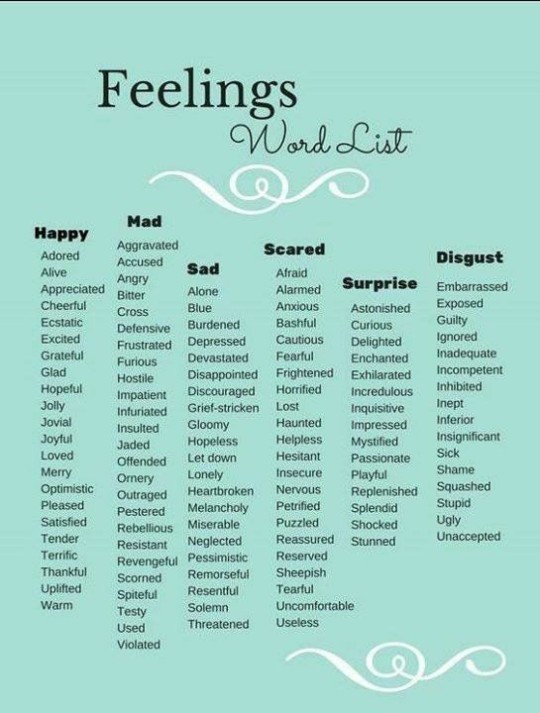
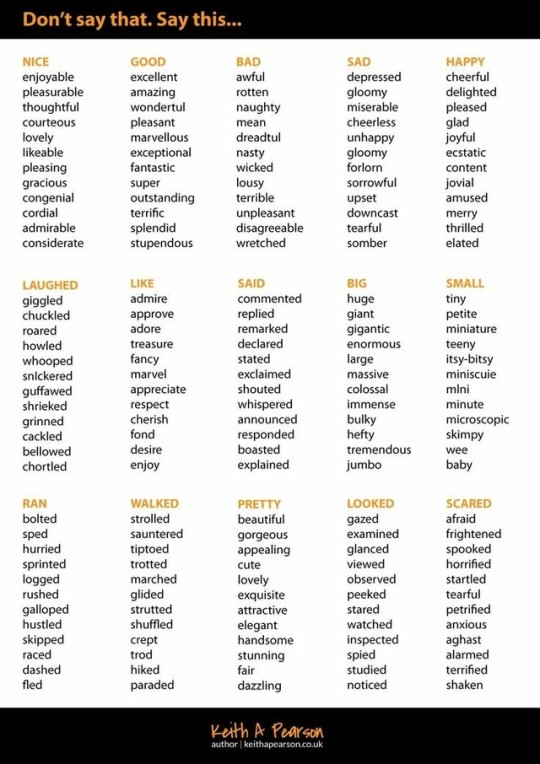
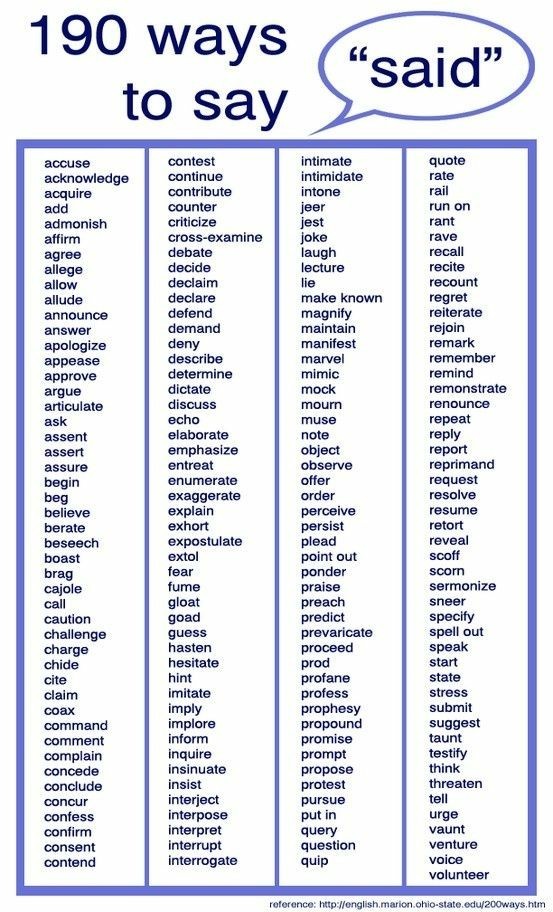
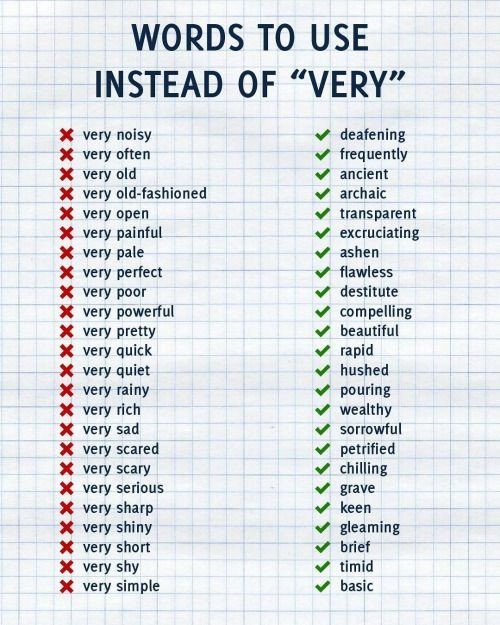
Alternative words
Source: pinterest
10K notes
·
View notes
Text
How to: write pain
Don't make paragraphs about it - battles are supposed to be fast-paced
Describe:
- the object used to harm the character
-where the injury is
-how long the character had had the injury
-how deep the cut is (for blades)
-whether or not the wound triggers other things (dizziness, bleeding)
There are different kinds of pain
punch/blunt force trauma:
-how it feels: aching, a single spike of pain before it fades into an ache, throbbing, numbness
-effects: swelling, bruising, broken bones, unconsciousness, dizziness, concussion, internal bleeding.
stab wound/cut
-how it feels: stinging (shallow wounds), burning
-effects: bleeding (the blood from arteries is a brighter red, like vermilion, the blood from veins is dark crimson), dizziness from the blood loss, unconsciousness, infection (if left unattended), death
gunshot
-how it feels: depends on the caliber bullet, from how far away they were shot and in what place
-effects: same as stab wounds
Things that an injured character may have/do
-heavy, harsh, ragged breathing
-panting, gasping, crying, grunting, hissing, groaning, whimpering, screaming, shrieking, clenching their teeth
-ears ringing, unable to speak
-pressing their hands on the injury to try and stop the bleeding, trembling, eyes rolling up into their head
-vision blurring, room spinning
Where to hit in a fight
temple and jaw - good for a knockout punch, but are near the skull so it will be dangerous if you miss (it can broke/dislocate your fingers)
nose/eyes - messes up the senses and distracts the opponent
neck: can mess up breathing, talking and the spinal cord
inner elbow: can disable the opponent's arm
solar plexus: hard to hit but very effective
liver: causes immediate pain, dizziness and loss of breath
kidneys
groin
outer/inner thighs
knees
-----------------
But not getting into a fight stops the injury for both the opponents :)
(thank you very much for all the support!!! i appreciate every single reblog/like/comment 💕 I'm happy I could help you)
16K notes
·
View notes
Text
I am a(n):
⚪ Male
⚪ Female
🔘 Writer
Looking for
⚪ Boyfriend
⚪ Girlfriend
🔘 An incredibly specific word that I can't remember
408K notes
·
View notes
Text
smut guide
for people who need some help with smuts
don’t read if you’re not comfortable
reaction words
shivered
shuttered
trembled
quivers
quakes
shakes
gasps
moan
groans
jolted
jerked
pants
huffs
cries out
bites back a moans
breathing hitched
collapsing
eyes rolled back
arched back
adverbs(a lack of adverbs weakens your writing)
shakily
desperately
roughly
deeply
raggedly
breathily
loudly
lazily
softly
gently
warmly
frantically
quickly
slowly
harshly
sexy words for said
purred
cooed
murmured
whispered
breathed
rasped
cried out
begged
muttered
growled
grunted
mewled
chocked
sobbed
whimpered
pleaded
teased
sexy actions
licking
nipping
biting
shoving our hips together
pinned their wrists
caressed
stroked
hike up shirt
pressing against wall
rank nails through hair
hooking legs around waist
splay hands over chest
dipping tongue into ___
hair pulling
grasping their chin and tilt up/down
cupping cheek
lips brush ear
hip grind/thrusting/rolled/shifting
dirty talk
tease
kissing
brushed lips together
teeth clicking together
lip play(biting/running tongue over lip)
pausing when lips are just barely touching
sucking bottom lip
kissing hard
teeth clicking
sucking tongue
swirling tongue around one
blow job
redden lips
swollen lips
slick
sloppy
making eye contact
hallowing cheeks
swirling tongue
fucking someones mouth
deep throat
playing with balls
using hands and lips together
oral(female)
lapping
playing with woman wetness
fingering
parting lips
flicking their tongue
delving tongue
fleshly pink/brown (i prefer not to use skin color for poc)
intercourse
sinking into someone/cock
riding
digging fingers into shoulder/hips/back/chest
snapped/slammed/pounding hips
pace/rhythm
orgasm
shockwaves
pulsing
shattered
coil snapped
splintering
going tense/still
jerking
moans mix with curses words and/or lover name
slang word
clit
cock
dick
slit
cum/cumming
sexy word
dark
sinful
lush
wanted
need
velvet/lace/satin/silk
desire
heat
aroused
intoxicated
teased
spanked
strip
13K notes
·
View notes
Text
words to use instead of
as
while
when,
whilst
even as
just as
just when
simultaneously as
so long as
at the moment that
at the same time that at the time that
in the act of
in the process of
on the point of
during the time that
at the same time as
during the time
throughout the time
in the time
during which
during which time
for the period that
at the same time
meanwhile
at the time
as long as
exactly when
at the very moment that
at the very time that after
as soon as
immediately when
immediately after
instantly when once
looked
glanced
gazed
stared
gaped
peered
focused
peeped
peeked
took a look
taken a look
watched
considered
saw
seen
observed
viewed
regarded
marked
checked out
glimpsed
spotted
eyed
took in
taken
in ogled
eyeballed
beheld
beholden
before
ahead
back
previously
since
sooner
afore
aforetime
ante
antecedently
anteriorly
before present
ere
fore
former
formerly
forward
gone
gone by
heretofore
in advance
in days of yore
in front
in old days
in the past
past
precendently
previous
up to now
smiled
beam
grin
laugh
smirk
simper
be gracious
express friendliness
express tenderness
look amused
look delighted
look happy
look pleased
touch
brush
caress
feel
handle
hit
kiss
lick
pat
reach
rub
strike
stroke
tap
abut
adjoin
border
communicate
contact
converge
dab
examine
finger
fondle
frisk
glance
graze
grope
inspect
join
line
manipulate
march
massage
meet
neighbor
osculate
palm
palpate
partake
paw
percuss
pet
probe
push
scrutinize
sip
smooth
suck
sweep
tag
taste
thumb
tickle
tip
toy
verge
be in contact
butt on
come together
feel up
impinge upon
lay a finger on
exhaled
breathe
emit
give off
let out
discharge
eject
emanate
evaporate
expel
issue
respire
steam
vaporize
nodded
acknowledge
bend
bow
greet
respond
salute
acquiesce
agree
approve
assent
passionate
ardent
dramatic
eager
eloquent
emotional
expressive
fervent
fierce
fiery
forceful
heartfelt
heated
impassioned
intense
poignant
spirited
strong
vehement
violent
zealous
affecting
animated
blazing
burning
deep
fervid
flaming
frenzied
glowing
headlong
high-powered
high-pressure
hot
hotblooded
impetuous
impulsive
inspiring
melodramatic
moving
precipitate
quickened
steamed up
stimulated
stirring
thrilling
warm
wild
but
although
however
nevertheless
on the other hand
still
though
yet
gasped
choke
snort
whoop
blow
convulse
gulp
heave
inhale
inspire
pant
puff
respire
sniffle
wheeze
catch one’s breath
fight for breath
frowned
glare
glower
grimace
pout
gloom
lower
sulk
cloud up
do a slow burn
give a dirty look
give the evil eye
knit brows
look black
look daggers
look stern
movement
act
action
change
development
evolution
exercise
flow
migration
move
operation
progress
shift
advance
agitation
alteration
swirled
boil
churn
roil
twirl
whirl
agitate
coil
crimp
crisp
curl
eddy
purl
roll
snake
surge
swoosh
whirlpool
whorl
wriggle
41K notes
·
View notes
Text
Other Words for 'Said' (in alphabetical order)
This is just a semi-comprehensive list of synonyms for ‘said.’ As a writer, I always find myself in need of better words because I’m kind of repetitive. ;;; Hope this is useful to someone!
Keep reading
152 notes
·
View notes
Text
For writers!
Instead of said, consider:
For normal responses:
stated
spoke
remarked
reported
For question responses:
added
asked
required��
requested
begged
For answered responses:
answered
replied
retorted
explained
acknowledged
responded
For happy responses:
rejoiced
laughed
giggled
sang
cheered
smirked
marvelled
smirked
chimed
For loud responses:
shouted
belted
yelled
shrieked
screamed
boomed
exclaimed
called
For quiet responses:
murmered
mumbled
muttered
breathed
sighed
hissed
mouthed
uttered
intoned
susurrated
purred
gasped
hinted
spoke softly
spoke in a hushed tone
insinuated
For worried/nervous responses:
quaked
trembled
stammered
stuttered
gulped
For angry responses:
demanded
hissed
fumed
thundered
snapped
sneered
barked
ranted
grunted
roared
bellowed
For bossy responses:
commanded
ordered
dictated
insisted
For crying responses:
cried
sobbed
groaned
bawled
whined
For silent responses:
thought
pondered
wondered
5K notes
·
View notes
Text
sibling relationships. taken from here & placed under a read more for myself. do not reblog this post, instead reblog the original.
A sibling relationship is perhaps one of the most complicated things to realistically write about. Your character dynamics and personalities will help determine their relationships but here are some things to consider:
Building their past:
Think about how they were raised. Upbringing plays a large role in impacting a person's character, and it also helps shape relationships with siblings.
Consider their favourite memories. Good memories are important to a person, and people often seek to create new memories similar to the old good ones. On the other side, also think about their worst memories.
Who was the oldest? Who was the baby? Birth order does have some impact on personality. It also is especially important for the earliest memories.
Think about the roles that they ended up in. Siblings do, to some extent, define themselves by how they are different from each other. They pursue different interests, take on different roles, and explore different identities. These roles can be a source of self-realisation and sometimes frustration.
Giving siblings personalities:
Choose personality traits for each sibling. Even if the sibling is only a minor character, it's important to know their basic personality.
Think about each character's dreams, hopes, and struggles. What do they want in life? What are their goals? Every character needs something to strive for.
Figure out their insecurities. Everyone feels insecure about different things: skills, personality traits, perceived physical flaws etc.
The siblings in your story might have similar looks, qualities and characteristics. However it’s important to make them their own person too.
Keep in mind that siblings might have the same habits, sometimes without even realising it. (Personal example- My eldest brother and I do not look the same. He has green eyes, mine are brown. I have dark hair, he’s blonde. Our faces are shaped different. He takes after our mum, I take after our dad. However, we have a lot of the same habits and mannerisms. We both carry ourselves in the same way, we both quirk our eyebrows in the same manner when confused. Little things like that, that when growing up I’ve picked up from him and vice versa.)
Things siblings do: (This is a generalisation)
Siblings know how to push each others buttons.
Usually they spend so much time with each other, they know exactly how to annoy their sibling and the best way to do it.
Whatever annoys your character, his (or her) siblings already know about it. If your character’s siblings decide to get on his nerves, it shouldn’t take them very long.
Most (if not all) siblings make fun of each other to some degree. Usually they are just messing with each other. Depending on the circumstances, the insult may be forgotten almost immediately.
But it’s important to consider how siblings react when someone else is picking on their brother or sister. A lot of siblings will get defensive in this situation. Unless you have set up a reason otherwise, make sure your siblings know how to tease each other but also how to protect each other.
They rarely call each other “sis” or “bro” unless they’re trying to be annoying. This is seen a lot in films and TV but it’s not common. The occasional greeting like that is fine, but overusing it just sounds strange and unnatural.
Sibling conflict:
Siblings will argue other pretty much anything. Most of the time it’s just to get a reaction. Sometimes one will start an argument just because they’re bored.
The silent treatment! A lot of siblings, particularly children teenagers and young adults will give each other the silent treatment over the pettiest things. But it’s incredibly hard to ignore someone living in the same house as you for a long period of time.
The sibling on the receiving end of the silent treatment will usually do absurd and annoying things to get their brother or sister to speak.
Common things siblings argue about:
The tv remote
Who is going to use the bathroom first
Someone is taking too long in the bathroom
Who gets to sit in the front seat of the car
Who the favourite is
Estranged siblings:
“Sibling relationships are our longest, but it’s also an accident by birth. There are no guarantees that the siblings will grow up with similar personalities, interests or like each other,”
You should be able to find plenty of conflict amongst brothers and sisters. But most of the time there is a resolution.
If you were to fall out with a friend, you can unfriend them, you can’t un-sister a sister, whether you like it or not you’re stuck with that person in some sense.
However, some siblings do fall out and never speak to each other again. It happens, but if this happens in your story there are a few things to consider:
When asked about their family will your character acknowledge that they have siblings? Or will they claim to be an only child?
Why did they stop speaking?
Would they reconcile in times of crisis? For example, if a family member died would the siblings put aside their differences to deal with the situation?
Do they tell stories about their childhood that include the sibling?
It’s important to remember that if someone has a sibling, a lot of their childhood memories and stories from growing up will have some reference or include that sibling. It’s hard to complete cut them out, they will be mentioned at some point.
Given the entangled, long-lasting bond, what’s the price paid for suspending or ending it?
Does the sibling have other brothers or sisters whose relationships are satisfying? “
“If they have no contact with a sibling, it’s losing a shared history and there can be a sense of guilt,”
Or are your character’s relieved? Do they express a sense of relief.
“Like the end of a marriage, sibling estrangement is always sad, even when it brings relief. It’s not what anyone hoped for, but sometimes it’s the wise and necessary choice.”
Ways of bringing together estranged siblings:
Write compassion between your characters. Show them trying to see things from the sibling’s viewpoint alongside their own.
Have them say what they want from their sibling moving forward. Don’t just have your characters vent all the time. Your reader might grow tired of that.
Confirmation of love and affection:
Are the siblings in your story the type to talk about feelings? Maybe they don’t talk about it but the feeling is still there. Consider showing the depth of their relationship through actions.
(Personal example - When I was born my brothers were 4 and 6 years older than me. From what my mum has said they were both excited to have another sibling and would fight about who got to hold me first. When we were younger we used to cuddle on the sofa and play together, and frequently said I love you etc, however as we got older that stopped. I can’t remember the last time I said I love you to either of them, which sounds terrible. But it doesn’t change the fact that I know they love me and that they know I love them, we just show it and say it in different ways.)
Relationships with parents:
How did parents or caregivers react to fights between siblings?
Was there parental favouritism, real or perceived? How did the non-favourite sibling(s) react?
Do your siblings stick together when arguing with their parents?
Would your characters lie in order to prevent their brother or sister being told off by their parents?
Some siblings will join forces to tease their parents.
What if the siblings don’t have a good relationship with their parents:
If this is the case in your story, research it, google is your friend.
Try and read up on real life experiences.
Consider how the siblings view their parents. Do they stand together with the same opinion or do they have conflicting recollection of events?
Do the parents have a healthy relationship with each other? How has this impacted their children?
Writing siblings who have abusive parents:
If the siblings come from an abusive home, how has this affect their behaviour?
Do the siblings ever talk about what happened?
Do they have the share the same experience? Do they ever argue about the situation?
Are they over protective?
Has their own relationship become strained? Have they drifted apart?
Do the siblings ever acknowledge the past? If not, does this cause friction?
Common assumptions about sibling age order:
Oldest child: people pleasing, bossy, organised, punctual, natural leader, controlling, ambitious, expected to uphold family values, caretakers, financially intelligent, responsible
Middle child: flexible, easy going, independent, sometimes feels like life is unfair, sometimes will engage in attention-seeking behaviour, competitive.
Youngest child: silly or funny, risk-taking, creative, sometimes feels inferior, easily bores, friendly, outgoing, idealistic, the baby of the family.
Only child: close to parents, demanding, leaders, spoiled, self-absorbed, private in nature, may relate better to adults to kids their own age, independent, responsible
While these are common assumptions, they are not strictly true and it’s important to consider your characters personality before you apply any of these stereotypes because it may clash with how your character truly is.
Half siblings:
Half-siblings can run along several lines:
They might act like full siblings, depending on how long they’ve known each other.
They may view each other as space takers.
Your characters may feel “eh” about their half- sibling, they could just be someone who is there but they don’t have a relationship with. The half-sibling may even be a complete stranger.
Consider that they might be rivals. Are they friendly rivals or bitter rivals?
Don’t get caught up in trying to build their relationship based on what “should be” in accordance with society. As you establish these characters, let your own imagination lead you to what their relationship is. But remember that their relationship will be impacted on how the parents treat them too.
0 notes
Photo
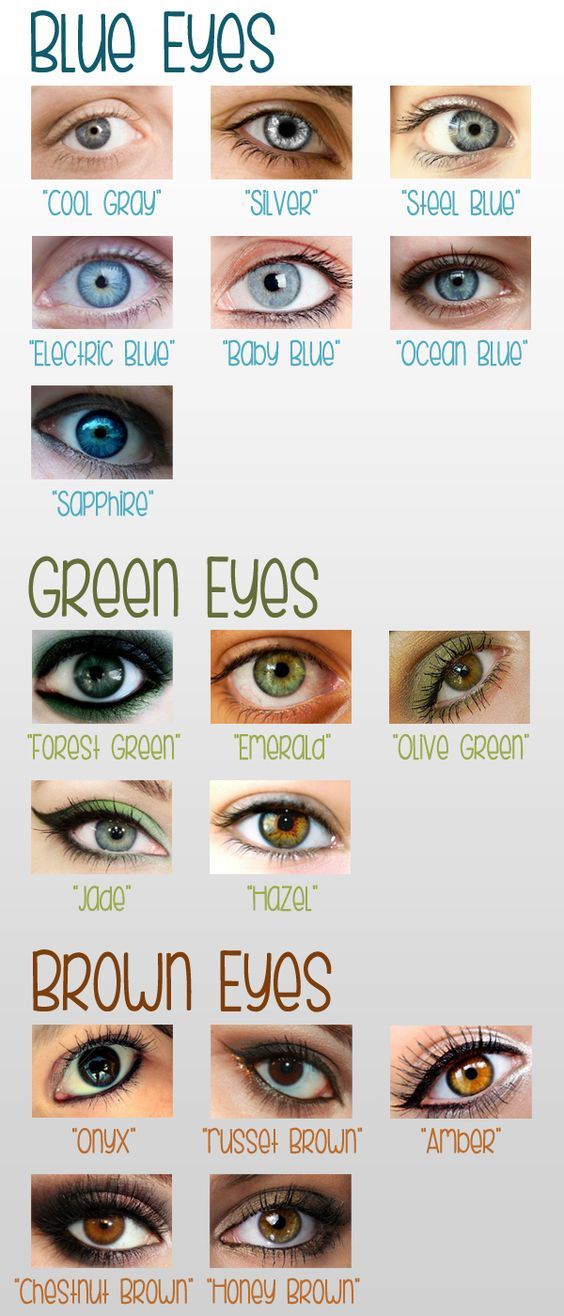
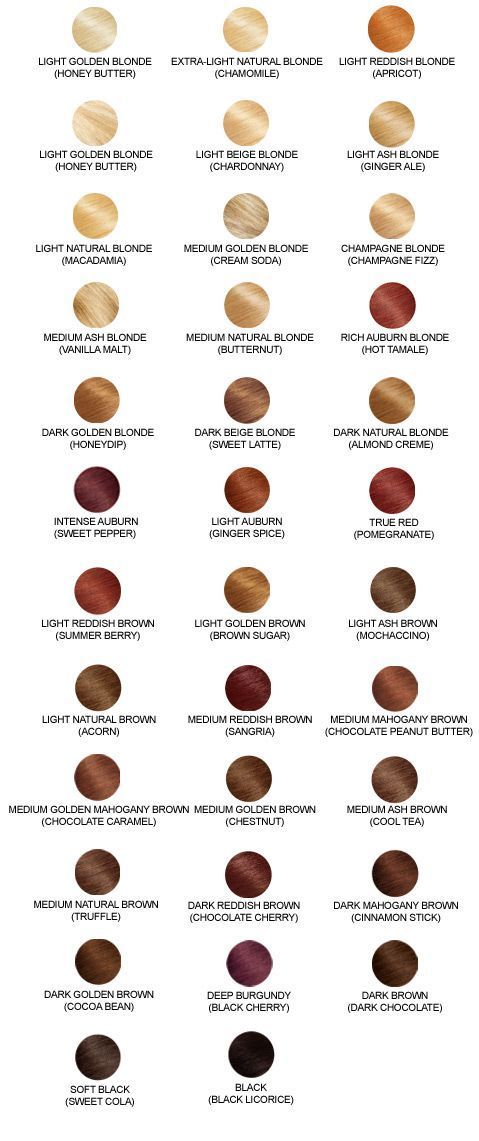
Eye and hair color reference
Sources: Pinterest
2K notes
·
View notes
Text
Synonyms For Very
This masterlist is a masterlist of words that you may use alongside the word very, very being one of the most common words that are used when writing. I hope this helps you as much as it helps me in our writing seem more sophisticated and unique.
A:
Very accurate - exact
Very afraid - fearful
Very angry - furious
Very annoying - exasperating
B:
Very bad - atrocious
Very beautiful - exquisite
Very big - immense
Very boring - dull
Very bright - luminous
Very busy - swamped
C:
Very calm - serene
Very careful - cautious
Very cheap - stingy
Very clean - spotless
Very clear - obvious
Very clever - intelligent
Very cold - freezing
Very colourful - vibrant
Very competitive - cutthroat
Very complete - comprehensive
Very confused - perplexed
Very conventional - conservative
Very creative - innovative
Very crowded - bustling
Very cute - adorable
D:
Very dangerous - perilous
Very dear - cherished
Very deep - profound
Very depressed - despondent
Very detailed - meticulous
Very different - disparate
Very difficult - arduous
Very dirty - filthy
Very dry - arid
Very dull - tedious
E:
Very eager - keen
Very easy - effortless
Very empty - desolate
Very excited - thrilled
Very exciting - exhilarating
Very expensive - costly
F:
Very fancy - lavish
Very fast - swift
Very fat - obese
Very friendly - amiable
Very frightened - alarmed
Very frightening - terrifying
Very funny - hilarious
G:
Very glad - overjoyed
Very good - excellent
Very great - terrific
H:
Very happy - ecstatic
Very hard - difficult
Very hard-to-find - rare
Very heavy - leaden
Very high - soaring
Very hot - sweltering
Very huge - colossal
Very hungry - ravenous
Very hurt - battered
I:
Very important - crucial
Very intelligent - brilliant
Very interesting - captivating
J:
K:
L:
Very large - huge
Very lazy - indolent
Very little - tiny
Very lively - vivacious
Very long - extensive
Very long-term - enduring
Very loose - slack
Very loud - thunderous
Very loved - adored
M:
Very mean - cruel
Very messy - slovenly
N:
Very neat - immaculate
Very necessary - essential
Very nervous - apprehensive
Very nice - kind
Very noisy - deafening
O:
Very often - frequently
Very old - ancient
Very old-fashioned - archaic
Very open - transparent
P:
Very painful - excruciating
Very pale - ashen
Very perfect - flawless
Very poor - destitute
Very powerful - compelling
Very pretty - beautiful
Q:
Very quick - rapid
Very quiet - hushed
R:
Very rainy - pouring
Very rich - wealthy
S:
Very sad - sorrowful
Very scared - petrified
Very scary - chilling
Very serious - grave
Very sharp - keen
Very shiny - gleaming
Very short - brief
Very shy - timid
Very simple - basic
Very skinny - skeletal
Very slow - sluggish
Very small - petite
Very smart - intelligent
Very smelly - pungent
Very smooth - sleek
Very soft - downy
Very sorry - apologetic
Very special - exceptional
Very strong - forceful
Very stupid - idiotic
Very sure - certain
Very sweet - thoughtful
T:
Very talented - gifted
Very tall - towering
Very tasty - delicious
Very thirsty - parched
Very tight - constricting
Very tiny - minuscule
Very tired - exhausted
U:
Very ugly - hideous
Very unhappy - miserable
Very upset - distraught
V:
W:
Very warm - hot
Very weak - frail
Very well-to-do - wealthy
Very wet - soaked
Very wide - expansive
Very willing - eager
Very windy - blustery
Very wise - sage
Very worried - distressed
X:
Y:
Z:
A/N: If you know of anymore words I can add please message me.
157K notes
·
View notes
Text
Stop using the word "Walk". We don't want that word to die together with "Said".
Here are a few words you can replace walk with.
AMBLE: WALK EASILY AND/OR AIMLESSLY
BOUNCE: WALK ENERGETICALLY
CAREEN: PITCH DANGEROUSLY TO ONE SIDE WHILE WALKING OR RUNNING
CLUMP: WALK HEAVILY AND/OR CLUMSILY
FALTER: WALK UNSTEADILY
FLOUNDER: WALK WITH GREAT DIFFICULTY
FOOT IT: (SLANG) DEPART OR SET OFF BY WALKING
FOOTSLOG: WALK HEAVILY AND FIRMLY, AS WHEN WEARY, OR THROUGH MUD
GIMP: LIMP; HOBBLE
HIKE: TAKE A LONG WALK, ESPECIALLY IN A PARK OR A WILDERNESS AREA
HOBBLE: WALK UNSTEADILY OR WITH DIFFICULTY; SEE ALSO LIMP
HOOF IT: (SLANG) WALK; SEE FOOT IT
LEG IT: (SLANG) SEE FOOT IT
LIMP: WALK UNSTEADILY BECAUSE OF INJURY, ESPECIALLY FAVORING ONE LEG; SEE ALSO FALTER
LUMBER: WALK SLOWLY AND HEAVILY
LURCH: WALK SLOWLY BUT WITH SUDDEN MOVEMENTS, OR FURTIVELY
MARCH: WALK RHYTHMICALLY ALONE OR IN A GROUP, ESPECIALLY ACCORDING TO A SPECIFIED PROCEDURE
MEANDER: WALK OR MOVE AIMLESSLY AND IDLY WITHOUT FIXED DIRECTION
MINCE: WALK DELICATELY
MOSEY: SEE AMBLE; ALSO, USED COLLOQUIALLY IN THE PHRASE “MOSEY ALONG”
NIP: WALK BRISKLY OR LIGHTLY; ALSO USED COLLOQUIALLY IN THE PHRASE “NIP (ON) OVER” TO REFER TO A BRIEF WALK TO A CERTAIN DESTINATION, AS IF ON AN ERRAND
PACE: WALK PRECISELY TO MARK OFF A DISTANCE, OR WALK INTENTLY OR NERVOUSLY, ESPECIALLY BACK AND FORTH
PAD: WALK WITH STEADY STEPS MAKING A SOFT DULL SOUND
PARADE: WALK OSTENTATIOUSLY, AS IF TO SHOW OFF
PERAMBULATE: SEE STROLL; TRAVEL ON FOOT, OR WALK TO INSPECT OR MEASURE A BOUNDARY
PEREGRINATE: WALK, ESPECIALLY TO TRAVEL
PLOD: WALK SLOWLY AND HEAVILY, AS IF RELUCTANT OR WEARY
POUND: WALK OR GO WITH HEAVY STEPS; MOVE ALONG WITH FORCE OR VIGOR; SEE LUMBER
POWER WALK: WALK BRISKLY FOR FITNESS
PRANCE: WALK JOYFULLY, AS IF DANCING OR SKIPPING
PROMENADE: GO ON A LEISURELY WALK, ESPECIALLY IN A PUBLIC PLACE AS A SOCIAL ACTIVITY; SEEPARADE
PROWL: WALK NOISELESSLY AND CAREFULLY IN A PREDATORY MANNER
PUSSYFOOT: WALK STEALTHILY OR WARILY
RAMBLE: WALK OR TRAVEL AIMLESSLY
ROAM: GO WITHOUT FIXED DIRECTION AND WITHOUT ANY PARTICULAR DESTINATION, OFTEN FOR PLEASURE; SEE RAMBLE
ROVE: TRAVEL CONSTANTLY OVER A RELATIVELY LENGTHY TIME PERIOD WITHOUT A FIXED DESTINATION; WANDER
SASHAY: GLIDE, MOVE, OR PROCEED EASILY OR NONCHALANTLY; SEE PARADE
SAUNTER: WALK ABOUT EASILY
SCUFF: WALK WITHOUT LIFTING ONE’S FEET
SHAMBLE: WALK OR GO AWKWARDLY; SHUFFLE; SEE SCUFF
SHUFFLE: WALK WITHOUT LIFTING THE FEET OR WITH CLUMSY STEPS AND A SHAMBLING GAIT; SEESCUFF
SKULK: MOVE IN A STEALTHY OR FURTIVE MANNER
SOMNAMBULATE: WALK IN ONE’S SLEEP
STAGGER: WALK UNSTEADILY
STALK: WALK STEALTHILY, AS IN PURSUIT
STEP: WALK, OR PLACE ONE’S FOOT OR FEET IN A NEW POSITION
STOMP: WALK HEAVILY, AS IF IN ANGER
STRIDE: WALK PURPOSEFULLY, WITH LONG STEPS
STROLL: WALK IN A LEISURELY WAY; SEE SAUNTER
STRUT: WALK WITH A STIFF, ERECT, AND APPARENTLY ARROGANT OR CONCEITED GAIT; SEE PARADE
STUMBLE: WALK CLUMSILY OR UNSTEADILY, OR TRIP
STUMP: WALK HEAVILY, AS WITH A LIMP; SEE LUMBER
SWAGGER: WALK WITH AGGRESSIVE SELF-CONFIDENCE
TIPTOE: WALK CAREFULLY ON THE TOES OR ON THE BALLS OF THE FOOT, AS IF IN STEALTH
TODDLE: MOVE WITH SHORT, UNSTEADY STEPS, AS A YOUNG CHILD; SEE SAUNTER AND STAGGER
TOTTER: WALK OR GO WITH FALTERING STEPS, AS IF FROM EXTREME WEAKNESS; SEE STAGGER(ALSO, SWAY OR BECOME UNSTABLE)
TRAIPSE: WALK LIGHTLY AND/OR AIMLESSLY
TRAMP: WALK HEAVILY OR NOISILY; SEE LUMBER AND HIKE
TRAMPLE: WALK SO AS TO CRUSH SOMETHING UNDERFOOT
TRAVERSE: WALK ACROSS OR OVER A DISTANCE
TREAD: WALK SLOWLY AND STEADILY
TRIP: WALK LIGHTLY; SEE ALSO STUMBLE
TROMP: TREAD HEAVILY, ESPECIALLY TO CRUSH UNDERFOOT; SEE LUMBER
TROOP: WALK IN UNISON, OR COLLECTIVELY
TROT: PROCEED AT A PACE FASTER THAN A WALK; SEE NIP
TRUDGE: WALK SLOWLY AND WITH HEAVY STEPS, TYPICALLY BECAUSE OF EXHAUSTION OR HARSH CONDITIONS; SEE PLOD
WADDLE: WALK CLUMSILY OR AS IF BURDENED, SWINGING THE BODY
WADE: WALK THROUGH WATER OR WITH DIFFICULTY, AS IF IMPEDED
WANDER: TO MOVE FROM PLACE TO PLACE WITHOUT A FIXED ROUTE; SEE RAMBLE
RESOURCES: (X) (X) (X) (X) (X)
30K notes
·
View notes
Photo
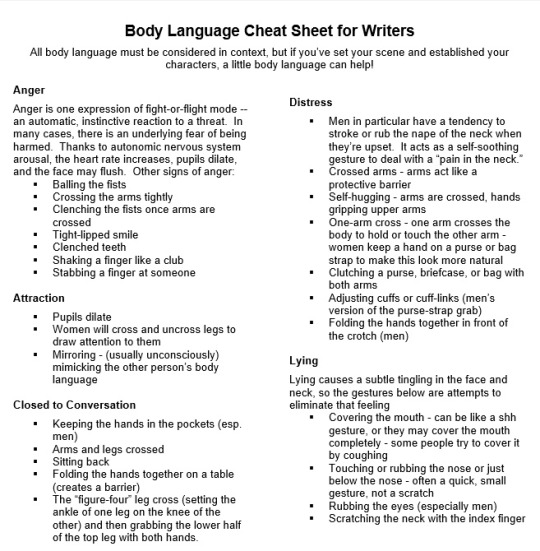
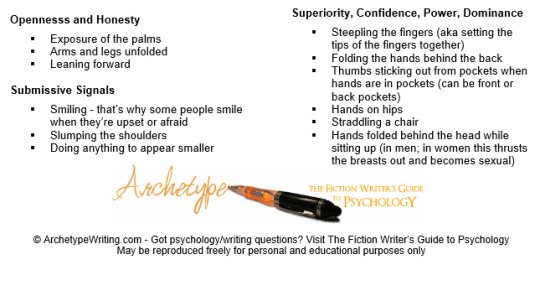
Body Language Cheat Sheet for Writers
As described by Selnick’s article:
Author and doctor of clinical psychology Carolyn Kaufman has released a one-page body language cheat sheet of psychological “tells” (PDF link) fiction writers can use to dress their characters.
467K notes
·
View notes
Text
CHARACTER FACIAL EXPRESSIONS (WRITING REFERENCE)
EYES/BROWS
his eyes widened
her eyes went round
her eyelids drooped
his eyes narrowed
his eyes lit up
his eyes darted
he squinted
she blinked
her eyes twinkled
his eyes gleamed
her eyes sparkled
his eyes flashed
his eyes glinted
his eyes burned with…
her eyes blazed with…
her eyes sparked with…
her eyes flickered with…
_____ glowed in his eyes
the corners of his eyes crinkled
she rolled her eyes
he looked heavenward
she glanced up to the ceiling
she winked
tears filled her eyes
his eyes welled up
her eyes swam with tears
his eyes flooded with tears
her eyes were wet
his eyes glistened
tears shimmered in her eyes
tears shone in his eyes
her eyes were glossy
he was fighting back tears
tears ran down her cheeks
his eyes closed
she squeezed her eyes shut
he shut his eyes
his lashes fluttered
she batted her lashes
his brows knitted
her forehead creased
his forehead furrowed
her forehead puckered
a line appeared between her brows
his brows drew together
her brows snapped together
his eyebrows rose
she raised a brow
he lifted an eyebrow
his eyebrows waggled
she gave him a once-over
he sized her up
her eyes bored into him
she took in the sight of…
he glared
she peered
he gazed
she glanced
he stared
she scrutinized
he studied
she gaped
he observed
she surveyed
he gawked
he leered
his pupils (were) dilated
her pupils were huge
his pupils flared
NOSE
her nose crinkled
his nose wrinkled
she sneered
his nostrils flared
she stuck her nose in the air
he sniffed
she sniffled
MOUTH
she smiled
he smirked
she grinned
he simpered
she beamed
her mouth curved into a smile
the corners of his mouth turned up
the corner of her mouth quirked up
a corner of his mouth lifted
his mouth twitched
he gave a half-smile
she gave a lopsided grin
his mouth twisted
he plastered a smile on his face
she forced a smile
he faked a smile
her smile faded
his smile slipped
he pursed his lips
she pouted
his mouth snapped shut
her mouth set in a hard line
he pressed his lips together
she bit her lip
he drew his lower lip between his teeth
she nibbled on her bottom lip
he chewed on his bottom lip
his jaw set
her jaw clenched
his jaw tightened
a muscle in her jaw twitched
he ground his jaw
he snarled/his lips drew back in a snarl
her mouth fell open
his jaw dropped
her jaw went slack
he gritted his teeth
she gnashed her teeth
her lower lip trembled
his lower lip quivered
SKIN
she paled
he blanched
she went white
the color drained out of his face
his face reddened
her cheeks turned pink
his face flushed
she blushed
he turned red
she turned scarlet
he turned crimson
a flush crept up her face
WHOLE FACE, ETC.
he screwed up his face
she scrunched up her face
he grimaced
she winced
she gave him a dirty look
he frowned
she scowled
he glowered
her whole face lit up
she brightened
his face went blank
her face contorted
his face twisted
her expression closed up
his expression dulled
her expression hardened
she went poker-faced
a vein popped out in his neck
awe transformed his face
fear crossed her face
sadness clouded his features
terror overtook his face
recognition dawned on her face
SOURCE
82K notes
·
View notes
Text
Smile (writing references)
(So I was doing research for myself, but I thought that it might be useful.)
Adjectives for Smile
radiant; broad; beautiful; sexy; lovely; rustic; uneasy; gracious; seductive; warm; disarming; regretful; winning; surprised; bitter; reminiscent; whimsical; boyish; girlish; wreathed; metallic; faint; apologetic; affectionate; sweet; amiable; solitary; pitying; ridiculous; quizzical; spicy; special; contagious; fawning amused; icy; wistful; courteous; crafty withering; beaming; dazzling; ravished; enormous uncontrolled; sickly; sly; devilish; maternal; eager naked; frank; joyous; complacent; brilliant answering; forced; angry; sympathetic wanton; contemptuous; deadly; sad; simulated; audible; illumined; parting; approving; ironical; mocking; sudden; indulgent; welcoming; irradiating; agreeable; restrained; watery; rare; playful; superior; arch; perpetual; innocent; sparkling; big; somber; polished; responding; irrepressible; religious; peculiar; convenient; everlasting; tolerant; vapid; priceless; vague; racked; complicated; smart; polite; murderous; disdainful sunny; indomitable; sinister; diabolical; complaisant; dim; patient; haughty; endless; rapid; passing; benign; lurid; crooked; placid; hot; grave; malicious; incredulous; timid; bland; provocative peerless; vivacious; mellow; wan; new quiet; calm; abrupt; loving; sagacious; cautious; buoyant; greasy; sardonic; conciliatory; sidelong; nasty; dawning; grim; ironical; false; meaning; sustaining; saucy; atoning; cynical; prodigal; charming; natural indifferent; tolerant; wry; little; visible mournful; naughty; weary; patronizing; languid deprecating; fitful; humorous; sarcastic; mutual; idiotic; frigid; hospitable; doubtful; ingratiating counterfeit; curious; mischievous; childlike exultant; saturnine; speculative; pensive immutable; condescending; pert; impish roguish; ghastly; rueful; hollow; unctuous inane; joyless; wild; satirical; reassuring slow; hideous; flattering; listless; parting fleeting; engaging; severe; immortal; insipid; moonshine; fascinating; facile; beatific; restless; scornful; blossomed; wondering; moony; senile; ambrosial; covert; airy; incisive; faded; shy; social; angelic; envious; debonair; bashful; artificial; waking; antiseptic; mischievous; paternal; dubious; malevolent; roguish; hungry; pale ready; clear; thoughtless; gentle; infectious conscious; timorous; haughty; frequent backward; enamored; obnoxious; pallid derisive; beguiling; excited; brittle; smarmy; conceited; sneering; wide; rascally; timid; meek; reluctant; courageous; nervous; kind; involuntary; smothered; ardent; brave; beaming; glowing; incandescent; inviting; fake; phony; imploring; practiced; delightful; endearing; cheerful.
Verbs for Smile
achieve—; answer with—; bestow—; cloud—; conceal—; crinkle into—; extinguish—; extract—; flash—; grant—; illuminate with —; induce—; loosen—; manage—; mock— permit—; provoke—; quench—; repress— rouse—; share—; shed—; suppress— throw—; toss—; wear—; wreathe in— wrinkle into—; —abashes; —basks; — confronts; —contorts; —creases; —crinkles; —deludes; —departs; —disconcerts; —disparages; —fades; —flashes; —flickers; —hides; —hovers; —lightens; —lingers; — mantles; —plays; —reassures; —renders; —reveals; —twitches.
Adverbs for Smile
delightedly; approvingly; shrewdly; affectionately; reluctantly; ecstatically; whimsically; tolerantly; radiantly; indulgently; benevolently; tremulously;grimly; sympathetically; blandly; beamingly; wanly; auspiciously; impudently; disarmingly; mischievously; magnanimously; unctuously; contemptuously; lewdly, winsomely; wryly; languidly; artificially; automatically; apathetically; benignly; facetiously; superficially; demurely; guilelessly; angelically; affably; ambiguously; coyly; cynically; cunningly; exultantly; exaggeratedly; cryptically; ruefully; benevolently.
14K notes
·
View notes